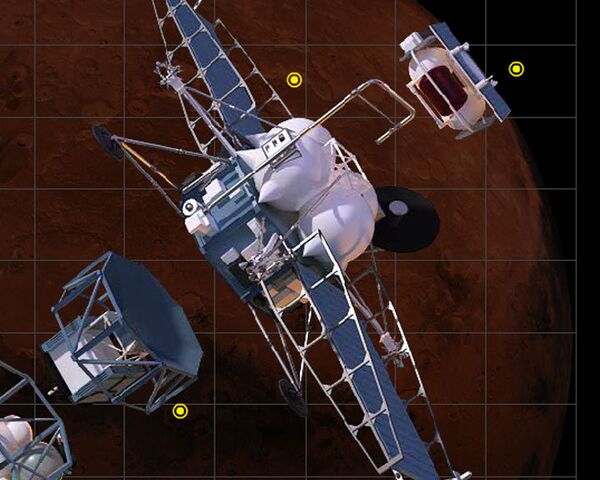Doomed Russian Phobos-Grunt Mars probe that's been stuck in Earth orbit for two months may finally come crashing down on January 15 over the Pasific Ocean, Russia’s space agency Roscosmos said on Saturday.
Roscosmos said the spacecraft will fall within the eight-hour interval starting from 18:36 on Sunday Moscow time [14:36 GMT] to 2:24 on Monday [22:24 Sunday GMT]. The possible scatter zone is 51.4 degrees North latitude to 51.4 degrees South latitude.
As of 20.30 Saturday, the spacecraft was moving in the near-Earth orbit with an altitude that varied between 144.6 km at perigee and 167.1 km at apogee, the Russian space agency said.
According to the latest report from the U.S. Strategic Command, the failed probe would hit Earth's atmosphere between 17:26 Moscow time Sunday [13:26] and 03:02 Moscow time Monday [23:02 Sunday GMT]. It puts the altitude at between 138.1 km at perigee and 160.2 km at apogee.
Rene Pischel, the head of the Moscow office of the European Space Agency (ESA), said the European agency’s specialists expect the reentry at 22:44 Moscow time on Sunday [18:24 GMT], give or take six hours.
German amateur astronomer Harro Zimmer expects the reentry to take place at 21:22 Moscow time [17:22 GMT] on Sunday, give or take 90 minutes. His calculations put the reentry location at somewhere over the Pacific Ocean, northeast of Indonesia.
Phobos-Grunt, launched on November 9, was designed to bring back rock and soil samples from the Martian moon Phobos. However, it has been stuck in a so-called support orbit since its engines failed to put it on course for the Red Planet.
The head of Russia’s Federal Space Agency (Roscosmos), Vladimir Popovkin, previously said the probe would break up during reentry into the atmosphere and none of the fragments are likely to reach the Earth.
That includes the 13.5-tonne spacecraft’s 7.5 tons of fuel, which are stored in aluminum tanks that are bound to explode upon reentry.
According to NASA, Russia has failed in all 17 of its attempts to study the Red Planet close-up since 1960. The most recent failure before last month occurred in 1996, when Russia lost its Mars-96 orbiter during launch.




